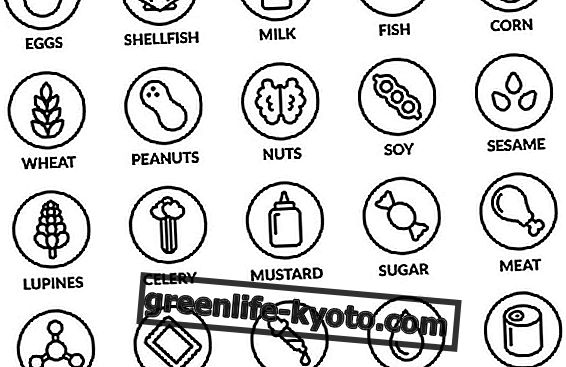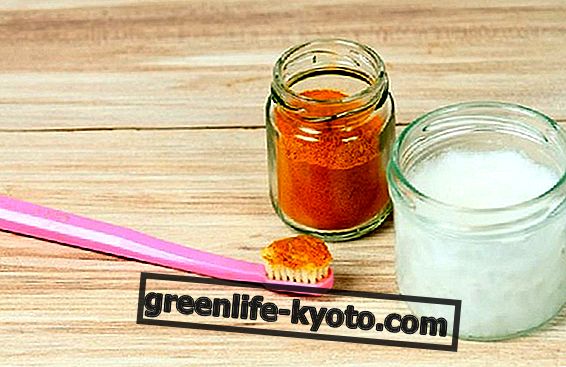
Urinary infections are divided into lower and upper infections depending on the area where the inflammation is present.
If the lower urinary tract is involved we will have an inflammation of the urethra and the cyst, and we will talk about urethritis and cystitis; if the upper urinary tract is involved we will be in charge of the kidneys and ureters and we will talk about nephritis .
Lower urinary tract infections are less severe and easier to heal while the latter have more sustained clinical importance.
Symptoms in case of urinary infections
The symptoms that can make you think of having a urinary infection are many but essentially they are feelings of disturbance at the time of urination .
A discomfort or a burning sensation can be felt during the urination or a malaise in the overlying area, of the pubis and abdominal area.
Initially the first symptom of urinary infection is the need to urinate more frequently and urgently or the feeling of not having completely emptied the bladder.
The symptoms can then worsen with persistent pain and pain indexes in fact of an infection in progress; in some cases the appearance of blood in the urine may also occur, sometimes visible to the naked eye, other times assessable only through a microscopic analysis of the urine.
The urine test is the best clinical analysis to diagnose the presence of a urinary tract infection as it verifies the presence of infection by evaluating the number of white blood cells and leukocytes in the urine that increases precisely in case of infection.
A final symptom of infection can be the presence of chills or fever associated with pain in the kidney area which leads to immediately thinking about the presence of an inflammation more often linked to the upper urinary tract and therefore involving the kidneys.
Renal colic is generally due to the presence of stones and inflammation of the urinary tract: let's find out what to do
Causes of urinary tract infections
Urinary tract infections are usually due to the presence of bacteria in the ducts or areas of the urinary tract that proliferate and trigger infection.
These bacteria are commonly present in our body both in the intestine and in other areas near the urinary tract and from these sites they can migrate starting to multiply and create infection in the urinary tract. The most common bacteria that cause urinary tract infections are Staphylococcus and Escherichia Coli .
Urinary tract infections are quite common in both women and men. In women, however, the percentage of incidence is much higher because the female anatomical shape of the urethra allows easy ascent by pathogenic bacteria that are responsible for infections.
In addition to the endogenous presence of bacteria that can migrate and trigger infection, there are other causes that create the habitat suitable for the development of urinary tract infections; body pH is of fundamental importance and the more acidic the more the risk of inflammation will arise and is influenced by various factors, in particular by nutrition, smoking and stress.
In the case of urinary tract infections, constipation is another risk factor because the presence of faeces in the tract can release toxic substances and bacteria that should be eliminated and that instead of staying too long remain inside the organism. Here too, proper nutrition plays an important part against this cause of urinary infections.
Other causes of urinary tract infection are associated with genetic predisposition and therefore specific to such a subject. Finally, even the presence of other diseases that require the use of medicines that can change the body's internal bacterial flora or diseases such as diabetes are also causes that can be linked to the possible onset of urinary tract infections.
Remedies for urinary infections
The first remedy for urinary inflammation is to increase body fluids to help purify the body and accentuate the elimination of infected substances and bacteria.
Drinking a lot is the first step to do: increase to at least 2 liters of natural water during the day and possibly split into 2 glasses every hour. In addition, the habit of adding fresh fruit and vegetables to add vitamins and increase body fluids and general body detoxification will be excellent.
In the food field we can help by eliminating the foods that acidify the body and increasing the alkalizing ones. The acidifying foods to be suspended in case of infections are all foods of animal origin (meat, fish, eggs, milk and dairy products) and also alcohol, white sugar and nervine drinks such as coffee.
Instead, increase all the alkalizing plant foods and then go ahead with fruit and vegetables. In particular, foods rich in vitamin C (kiwi, strawberries, citrus fruits, dog rose and acerola) must be increased precisely because this vitamin activates the important immune system in the anti-inflammatory response and also leads to the right pH balance of the urine creating an environment that does not allow the bacterial proliferation.
Some foods are also healing so they are known as superfoods; an example is the blueberry, both red and black, an excellent anti-inflammatory clinically studied in the resolution of urinary tract infections. Drinking a glass of cranberry juice or eating fresh fruit is the best prevention against the proliferation of pathogenic bacteria in urinary infections. The blueberry is in fact considered a natural antibiotic that prevents the appearance of cystitis and urethritis.
In the herbal field we will be able to ask for help in natural remedies such as bearberry which is suggested in case of urinary tract infections and in particular against cystitis: the mother tincture in drops is the best form of intake and it will be enough to take 40 drops dispersed in half a glass of water to help resolve urinary infection.
Also excellent are the peduncles of cherry and the weft both in the form of an herbal tea to drink and as a mother tincture .
Other plants useful in case of inflammation are the draining herbs (dandelion, asparagus, birch and fennel) and the detoxifying herbs (cardoon, boldo and artichoke). The form of intake for these herbs can be in herbal tea from one to two cups a day or single-dose fluid or solid herbal remedies.













